With oil and petrol supplies set to eventually deplete, high carbon footprints and ever increasing fuel prices, alternatives to the fossil fuel combustion engine is the only viable future.
Electric cars or hybrids that use two or more power sources are becoming more commonplace. Electric cars offer zero carbon output and are far cheaper to refuel and maintain compared to the contemporary diesel and petrol powered versions many of us still use.
Deciding whether electric or fossil fuel is for you, the benefits and disadvantage must be weighed up. Here we look at the electric car pros and cons, potential problems and various facts to help you decide the appropriate vehicle for you.
Electric cars available in the UK
Below are some popular and affordable electric cars currently available for purchase in the UK, along with approximate prices and including the governments electric car grants and other various specifications that can be used for comparison.
Certain car manufacturers now offer premium electric cars that have larger batteries and increased range of up to 300 miles per full charge. If electric isn’t the way for you, our guide explains the most fossil fuel efficient cars currently available.
Renault Twizy
The Renault Twizy is currently the cheapest full electric car on the market.
- Price: £6,690. Price excludes mandatory battery hire
- Power: 6.1-kilowatt (17bhp) electric motor
- Speed: 62mph / 100 km/h
- Range: 62 miles / 99 km
- Full charge time: 3.5 hours
- Number of seats: 2
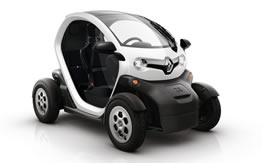
Citroën C-Zero electric car
Also known as the Mitsubishi’s i-Miev and the Peugeot iOn
- Price: £17,020 (including 35% government grant)
- Power: 47-kilowatt (66bhp) electric motor
- Speed: 80 mph / 128.75 km/h
- Range: 93 to 105 miles
- Full charge time: 7.5 hours (7kW) or 5 hours (11kW)
- Quick charge time: 80% in 30 minutes
- Number of seats: 4
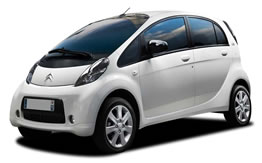
Nissan Leaf
- Price: From £20,990 (£15,990 with government grant)
- Power: 107bhp electric motor
- Speed: 150 km/h (93 mph)
- Range: 100 miles / 160 km
- Full charge time: 8 hours
- Quick charge time: 80% in 30 minutes
- Number of seats: 4
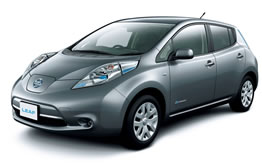
Hyundai IONIQ Electric
- Price: £27,250 (including 35% government grant)
- Power: 28kWh / 120 PS electric motor
- Speed: 165 km/h (103 mph)
- Range: 174 miles / 280 km
- Full charge time: 4 hours 24 minutes
- Quick charge time: 80% in 30 minutes
- Number of seats: 4
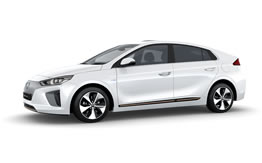
Renault Zoe
- Price: From £17,720 (including 35% government grant)
- Power: 87bhp electric motor
- Speed: 145 km/h (90mph)
- Range: 130 miles / 209 km
- Full charge time: 3-4 hours
- Quick charge time: 80% in 30 minutes
- Number of seats: 4
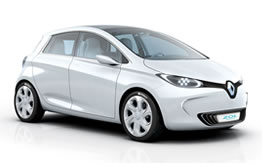
Smart Fortwo Electric Drive
- Price: From £17,695 (including 35% government grant)
- Power: 81 hp electric motor
- Speed: 125 km/h (78 mph)
- Range: 99 miles / 159 km
- Full charge time: 8 hours from standard 3 pin plug
- Quick charge time: 1 hour to full charge from 22kW charger
- Number of seats: 2

Vauxhall Corsa-e
- Price: From £29,990 (including £3,500 government grant)
- Power: 28kWh electric motor
- Speed: 0-31 mph in 2.8 seconds
- Range: 205 miles / 330 km
- Full charge time: 8 hours
- Quick charge time: 80% in 30 minutes
- Number of seats: 4
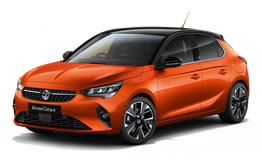
electric cars, Are they really green and good for the environment?
Our combustion engine car emissions are clearly a major contributor to global pollution and contribute around 15 percent of all CO2 emissions. In terms of electric car (EV) ownership, zero pollution and zero CO2 emissions is a major advantage. However, depending on your electricity supplier, charging your EV may contribute to CO2 emissions. That being said, more UK electricity is coming from low carbon, renewable sources all the time with coal-fired power plants on a massive decline. By 2050, all of the UK’s electricity should be CO2 neutral.
There is also the issue of the huge lithium-ion batteries required to power electric vehicles. The raw materials (Lithium) requires mining which harms the environment. As the demand for EV’s increase, so will the need for these materials. This however is likely to soon change with almost all car manufacturers investing heavily in battery technology. Batteries that are safer (non-flammable), lighter and that require fewer natural resources will become standard and over time, considerably cheaper.
Another concern is that if there’s enough energy to charge a nation full of electric cars. The National Grid has stated that it can cope with an influx of EV’s, but not necessarily if they were all being charged at the same time – all at night for example. There’s solutions in development, but home smart charging that regulate output based on demand and supercharging station technology which stores energy and draws from the grid sustainably are options.
So electric cars aren’t without fault, but unlike traditional fossil fuel burners, the future of electric vehicle technology is only going to improve to become more efficient, safer and much cleaner for the environment.
Should I get an electric car, are they worth it?
One of the main disadvantages of electric cars is the lack of range. Currently only premium electric cars provide a range-topping 300 miles based on a full charge and these don’t come cheap. More affordable versions typically have around half that range. But if your driving habits typically involve short trips in and around town and you have the ability to charge at home, an EV is likely to offer considerable savings.
To give you a rough idea of costs, 100 miles on an EV will cost around £4 worth of electricity and compare that to a fossil fuel car of around £14, your’s looking at about 70 percent savings on fuel. Also due to less moving parts, electric cars require less services and what services do take place will be cheaper compared to fossil fuel cars. Other savings can be made due to road tax exemption and congestion charges in cities if applicable to you.
Going electric may cost more in some areas however. Insurance is typically around 20 percent more for an electric vehicle compared to a fossil fuel variant and there’s the purchase price which will see you paying a little more for an electric version. This is primarily due to the high production costs of the battery. Over time with this technology progressing, the cost of battery manufacturing will decrease.
Another issue that can affect electric cars is temperature. A pleasant ambient temperature of 21°C will see you get the most out of your EV, but batteries don’t much like the cold or excessive heat. The greater the extreme either side of that 21°C will see the mileage reduced, especially when heating or air conditioning is switched on.
Electric car advantages
- Zero CO2 emissions – The car itself produces zero CO2 emissions helping to reduce local pollution. The amount of pollution produced at the power plant as a result of charging your car depends on how clean the plants energy source is, for example coal vs. wind turbines.
- Pay no road tax – Road tax is based on CO2 emissions, as electric cars produce zero emissions, you pay no road tax.
- Government grants – UK government’s offer up to £3,500 grant towards electric cars.
- No gears – Electric cars have no gears making driving easy.
- Free parking – Parts of London where residents and businesses that have electric vehicles can park for free in their own controlled parking zone areas.
- Congestion charge – Electric cars are exempt from the congestion charging scheme.
- Low fuel costs – An electric cars electricity cost is low. On average you’ll save around 70 percent to fully charge an electric car based on the same mileage in a fossil fuel vehicle.
- Efficient recycling – All batteries have a lifespan, even those on electric cars. Electric cars lithium batteries recycle well and little is wasted, which is good for the environment.
- Faster than you think – Impressive acceleration on many models and top speed that is perfectly acceptable.
- Electric cars are quiet – If you prefer a quiet and peaceful drive, you can’t get much quieter than an electric car.
Electric car disadvantages
- Low mileage range – This is an area where EV’s are improving, you’ll need to spend a premium for a high-range electric car of around 300 miles per charge.
- Long recharging time – Again, something that is constantly improving. Currently a full charge takes around 8 hours from a home charger although this varies on the model of vehicle. Quick charging (around 80% in 20 to 30 minutes) times from charging stations is becoming common.
- Purchase price – Electric cars currently cost rather a lot to buy, though prices are falling. Even with a £3,500 government grant, some models can be expensive.
- Performance is effected by environment – Living in an area with lots of hills will affect the range of the vehicle.
- Performance is effected by weather – Very hot and very cold weather affect the range of the vehicle.
- Large heavy batteries reduce the cars range – Electric cars require many batteries connected, essentially making one huge battery that is extremely heavy and that affects the range of the vehicle. As technology improves, lighter materials will likely be developed.
Electric car performance
Electric cars have come a long way in just a few years and generally outperform their fossil fuel equivalents. Take the Nissan Leaf for example, 0-60 mph in well under 10 seconds and a top speed of over 90 mph. Premium electric cars from Audi and Porsche can reach 60 mph in around 4 seconds and have a top speed in excess of 120 mph.
Electric car government grants
Throughout the duration of this parliament, the government provides an electric car grant called the Plug-in Car Grant scheme that offers private purchasers and businesses who have a UK based address 35% towards the cost of the vehicle, up to a maximum of £3,500. Only certain electric vehicles are eligible for the grant and other certain criteria must be met. To find out these particulars and other information, see the governments website.
Electric car road tax
Petrol and diesel cars are becoming more expensive to tax – particularly diesels. Depending on the vehicles CO2 emissions, the less the better as tax bands range from paying nothing, up to the highest tax band (M) at £1,065. Electric cars produce zero CO2 emissions and are exempt from road tax. Prior to 1 October 2014, you would still need to display a tax disc even if there’s zero road tax to pay. From 1 October 2014 however, paper tax discs are no longer provided by the DVLA. For further information, see driving without tax.
London congestion charge for electric cars
Electric cars are best suited to city and town drivers. Those who live in London and are affected by the London congestion charge may benefit from using an electric car as these vehicles are exempt.
Are electric cars cheaper to insure
It’s basically the cost to the insurance company if something goes wrong that determines the cost you pay for any vehicle insurance. Although electric cars are becoming more popular, they are still considered a specialist vehicle and if something goes wrong, they require specialist repair. Specialist repair will of course cost more than popping it into the garage down the road.
This and the fact that electric cars are rather expensive to purchase, or replace means that electric car insurance may cost more than a equivalent diesel engine vehicle that would be cheaper to repair or replace at the insurers expense. The electric cars battery is one of the most expensive components of the vehicle. You may own the battery or choose to lease it and pay a monthly fee. You will need to make this clear to your insurance company and also fully understand who is liable for the battery due to damage from an accident or any other incident.
As its a specialist vehicle, it requires specialist insurance and not all insurance providers offer coverage for electric cars. But as with normal car insurance, obtain as many quotes as possible to assess coverage that best suites you.
Driving electric cars no licence required
That’s not all electric cars, but those who do not have a full car driving licence from 16 years of age and over, can legally drive specific electric cars on public roads. At the beginning of 2013 a licence category ‘AM’ allows for the use of light quad bikes with:
- unladen mass of not more than 350 kg (not including batteries if it’s an electric vehicle)
- maximum design speed of over 25 km/h but not more than 45km/h
The Renault Twizy falls into such category and reasonably priced at £6,690 – especially when compared to other electric cars.
